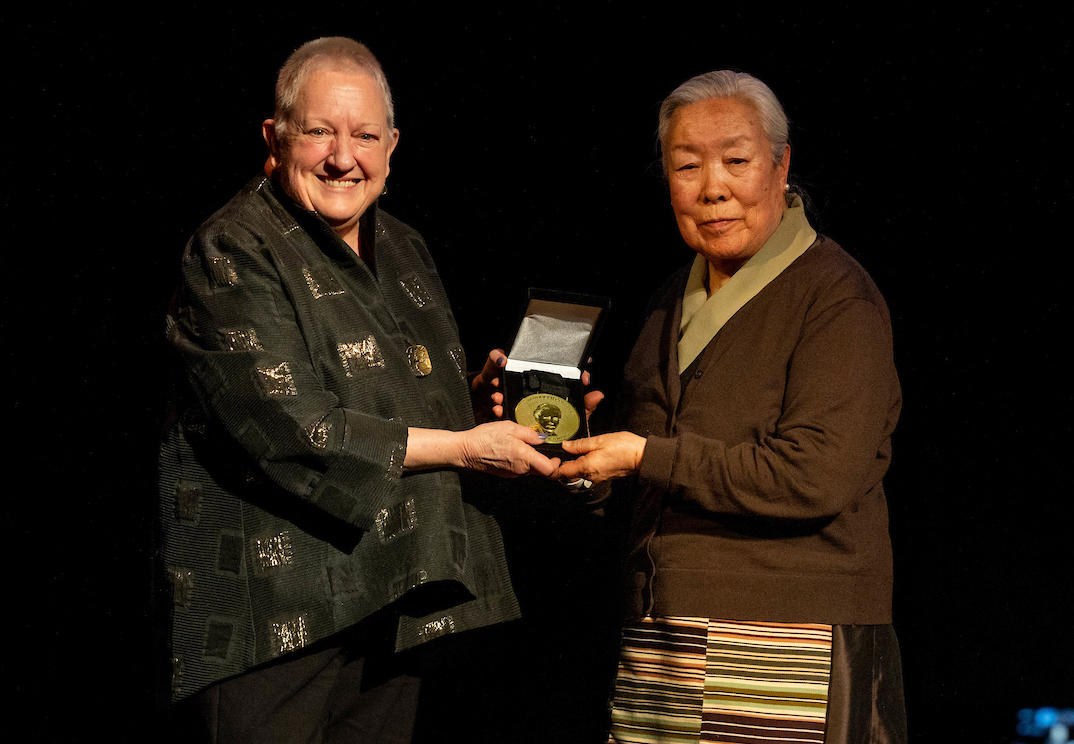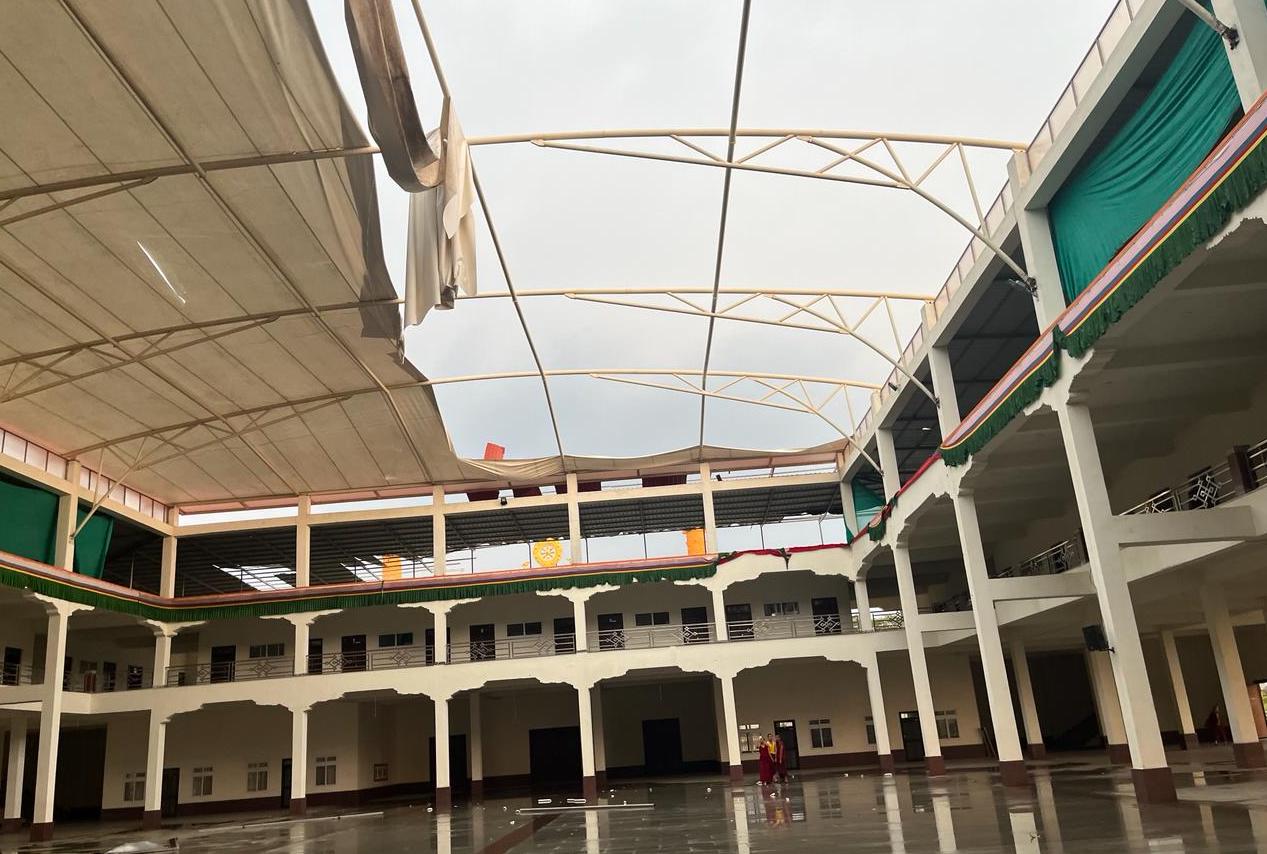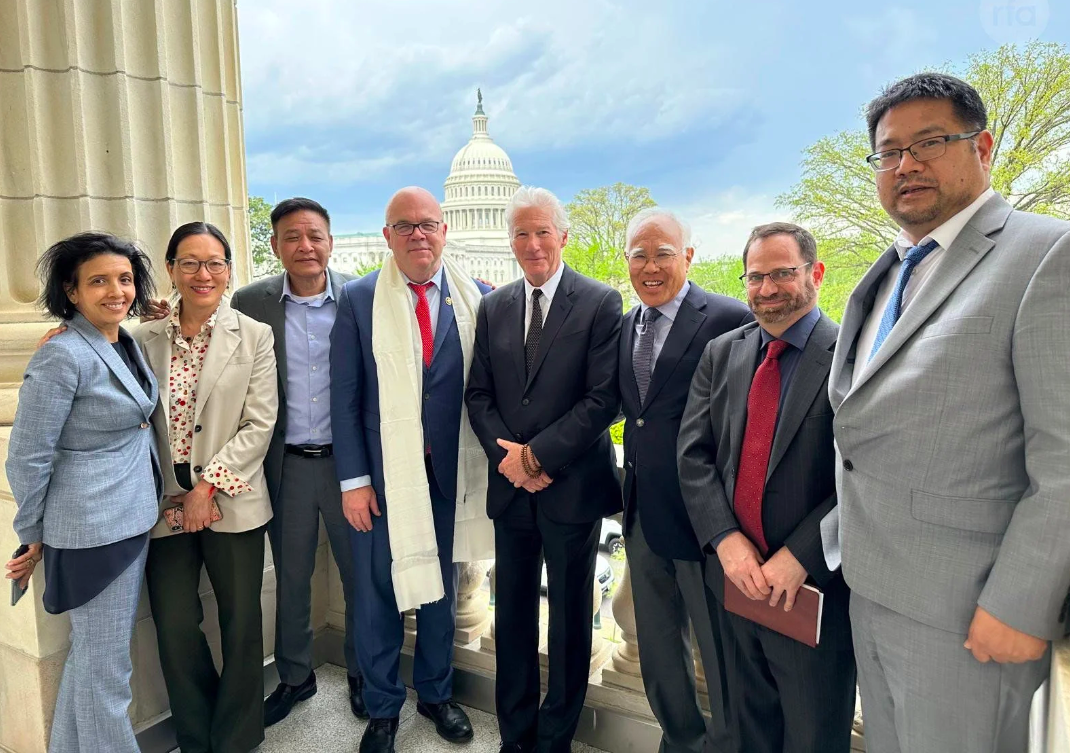By Tenzin Choephel
Phayul Correspondent
“In our exile community also, younger musicians could boost our political campaigns during concerts, if they give political messages for one minute also, it could have greater impact than speech of a minister”
 Ngodup Tsering La is one of members of the famous Tibetan band, the ‘Yak’ Band that once attracted the Tibetan community to their rocking and patriotic music including the super hit ‘tsechen chakna pemed’. The band dismembered during their hey days due to personal reasons but now after over a decade, they are back but all former members could not rejoin and so four new younger members are included. According to Ngodup La, now based in Berkeley, California, it is rather more of passing on the legacy of the Yak Band to younger boys than their reunion. Phayul correspondent in Kathmandu met him for a candid interview. Excerpts of an interview:
Ngodup Tsering La is one of members of the famous Tibetan band, the ‘Yak’ Band that once attracted the Tibetan community to their rocking and patriotic music including the super hit ‘tsechen chakna pemed’. The band dismembered during their hey days due to personal reasons but now after over a decade, they are back but all former members could not rejoin and so four new younger members are included. According to Ngodup La, now based in Berkeley, California, it is rather more of passing on the legacy of the Yak Band to younger boys than their reunion. Phayul correspondent in Kathmandu met him for a candid interview. Excerpts of an interview:
Phayul: The Yak Band was very popular in the late 80’s and early 90’s, as a drummer and band member, could you tell us how was the situation of Tibetan music that time and what helped your band to become popular?
Ngodup: Nowadays it is easy for upcoming artistes to become popular overnight because it is the benefit of those musicians who worked hard before. I am actually not among the original band members, they were all in the military, they worked hard and used to play for officers. In 1989 when His Holiness received the Nobel Peace prize, they composed the song ‘tsechen chakna pemed’ and performed live in front of Tsuklakhang temple in Dharamsala. People were amazed to know that there are good Tibetan musicians who can perform live music and they became an instant hit and was also recognized by the Tibetan Government. After sometime, some members had to leave the group due to resettlement in USA, that time I was a member of Choksum Band of Darjeeling. We performed twice in Dharamsala. They needed a drummer and approached me, I was new and ofcourse readily agreed to join such a famous band and that’s how I became a member of the Yak Band. In 1995, we launched an album during Kalachakra and performed live and our show tickets were sold off before 15 days, that time the public response was at peak and I think people still have that love for us.
Phayul: Could you tell us about the band members of that time?
Phayul:How did the band dismembered in 1995 during your hey days?
Ngodup: Thubten was the main member of our band, due to family issues he had to return to Kalimpong, Phuntsok also got job in TIPA, Tsering Paljor also worked for Security Department and there was no one to manage our band, so I told Sangye, our main founding member that I could not take responsibility of all equipments and so we decided to dissolve our group and donated all our equipment to TCV School, that’s how we parted.
Phayul: How did you feel about it?
Ngodup: Honestly, we don’t know about our popularity that time, we just play music and we were like brothers. Though it was very sad to break the group due to personal reasons.
Phayul: What was your best moment of Yak Band?
Ngodup:It was during Kalachakra, when we performed our own composed ‘rangzen’. People loved that and when they sang together, it was the best moment and I always remember that.
Phayul: Where was your best performance?
Phayul: Which is your favorite song of your Yak band?
Ngodup: My two favorite songs are ‘rangzen’ and ‘sherig rekul’ and always encourage young people to sing these songs that have strong messages.
Phayul: We heard about reunion of Yak Band and you performed in India, how did that happen?
Ngodup:One of our main member was Thubten based in Kalimpong and one member is in Paris. In 2006 Thubten performed in Canada, after that we talked about the concerts in India and he suggested about the reunion of our Yak Band and I said of course I am ready, I love music but we should ask others also. Our objective was to bring together all former members but we could not get back all members due to personal reasons. Thubten has been supporting and guiding four young Tibetan school going boys of Kalimpong with their passion for music. I agreed that we could perform together this year in the name of revival of the Yak Band and lets see how it goes next year, if former members could join it would be wonderful, but if they couldn’t then at least we could give the name to a younger group of Tibetans, our objective is to retain the name of Yak Band.
Phayul: How are the new young members?
Ngodup: Thubten told me about them saying that they were nice young Tibetans. I went to Kalimpong on 28th February, met them and practiced with them for one week. They were born in Kalimpong, neighbors and good friends, I couldn’t say about their standard of music but they are young and energetic and ready to work hard, they are very interested in music. They are very nice and I think I would try to help them.
Phayul: How do you feel performing after a long period?
Ngodup: I was very excited performing after a long time. Secondly, before I didn’t know the popularity of our band but this year when they announced Yak Band and I saw the response of people, I thought wow we are something, I was very happy.
Phayul: So, people still haven’t forgotten Yak Band.
Ngodup: People were more interested and excited than before. People give positive comments and it gives us encouragement. We play our own music and don’t have to depend on other musicians, may be that’s the reason people love our music very much.
Phayul: We heard about a new album of the Yak Band, could you tell us about it and your expectations?
Ngodup: This year’s album is produced by our new band members, I am not in it; their standard of music is good but I am not sure if their accent might be acceptable to our Tibetan audience because they were brought up in Kalimpong. However, their standard is good and Tibetans should know that they play their music and support them.
Phayul: What is the future plan of Yak Band?
Ngodup: Our plan is to keep going, even if we couldn’t do, let these young people carry on their music; one of our member if still in Paris, Thubten Gelek (Rinpoche). He also came to Darjeeling and we talked about it and we are discussing about the future but nothing has been finalized, maybe we would decided by July.
Phayul: What is your opinion about the present Tibetan music industry considering artistes both inside and outside Tibet?
Ngodup: In India and Nepal, we have two groups of artistes, one who sings on track, maybe they have difficulties, and the ones who could play their own music. Whatever, there is no restriction and I think they should use that freedom. Inside Tibet, whether they sing in Chinese style or whatever, it is important that a Tibetan is singing a Tibetan song. We should judge them by their style of music, it is important that we accept a Tibetan singing a Tibetan song.
Phayul: How do you see the present situation of Tibetan music development?
Ngodup: I think mixing traditional Tibetan music with modern music that many are doing is good because some love western music and some love traditional music. I think it is wrong to say that traditional music should not change at all because frankly speaking our traditional music is not very rich, so whatever we have, I think we should create new Tibetan music mixing with other music and slowly it could get some recognition.
Phayul: Would you like to give a message to other fellow Tibetan musicians?
Ngodup: I would like to tell all musicians to keep it up and never give up, no matter what kind of music they play. I don’t think it is very important to see public response. Believe in your music, it takes time, you would get recognition some day, even if you don’t, don’t bother because you play music for the love of music. As a Tibetan I think if our Tibetan musicians give sometime on stage to send political message and remember the kindness of His Holiness the Dalai Lama, it would have a big impact on their audience because music is very important and used to influence people. In our exile community also, younger musicians could boost our political campaigns during concerts if they give political messages for one minute also, it could have greater impact than speech of a minister.









